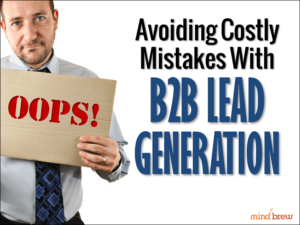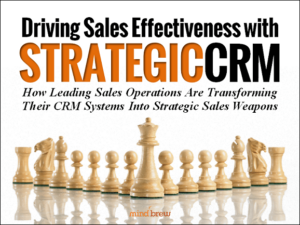When it comes to expense-per-square foot, it’s hard to beat a trade show booth. You rent that small space for 2 or 3 days at an exorbitant rate. You might spring for the extra carpet padding. And don’t forget the plants! Renting a potted tropical plant for $75 per day is a good way to combat the dull glow of those florescent lights. And then there’s the booth structure itself. Go to some of these really big industry events, and you could likely buy a nice house for the the average cost of a booth.
But as expensive as they are, there’s an ROI, right? You can track how many leads you generated, the opportunities that emerged and the sales that you ultimately get. Hopefully the revenue generated ends up being more than the fully-loaded cost of attending the event. (Of course, you likely won’t know for sure before the event company hounds you to reserve your space to attend the same event next year…)
Ok…there’s a healthy rant on trade shows. Now take a second and ask yourself a few questions…
- Do you know the names of 10 companies that should be buying from you but aren’t?
- Do you have a general idea of the firmographics of ideal customers so you can look up 10 more companies?
- Do you know the roles and titles of the ideal contacts that could buy what you’re selling?
- Do you have a way to find 3 contacts with those titles at each target company—maybe their email address or phone number?
I might be going out on a limb here, but I’m thinking the answer is probably yes to all of those questions. The fact is, most B2B companies sell to a defined market. And one of the perks of selling in this day and age is the immense amount of data that is available to find these companies and contacts.
Of course, it didn’t used to be this way. Before the Internet, email and database marketing, your only real opportunity to discover new prospects was for them to discover you. Back then, something like a trade show would sound pretty appealing. With no easy way to reach potential prospects at-scale, it made lots of sense to attend an event where potential leads can come to you. You’d be in front of companies and contacts that might have never discovered you otherwise.
But if you’re attending a trade show these days, there’s a good chance you could have reached those same contacts in other ways for a lot less money. And if your sales team works on commission or variable pay, there’s a good chance that you end up paying twice for a sale from an expensive trade show lead. After all, the bill for that carpet padding and rented plant won’t be coming out of their commission check.







